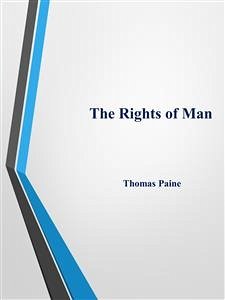Political and anti-Christian writer, son of a stay-maker and small farmer of Quaker principles at Thetford, became with large classes perhaps the most unpopular man in England. After trying various occupations, including those of schoolmaster and exciseman, and having separated from his wife, he went in 1774 to America where, in 1776, he published his famous pamphlet, Common Sense, in favour of American independence. He served in the American army, and also held some political posts, including that of secretary to a mission to France in 1781. Returning to England in 1787 he published his Rights of Man (1790–92), in reply to Burke’s Reflections on the French Revolution. It had an enormous circulation, 1,500,000 copies having been sold in England alone; but it made it necessary for him to escape to France to avoid prosecution. Arrived in that country he was elected to the National Convention. He opposed the execution of Louis XVI., and was, in 1794, imprisoned by Robespierre, whose fall saved his life. He had then just completed the first part of his Age of Reason, of which the other two appeared respectively in 1795 and 1807. It is directed alike against Christianity and Atheism, and supports Deism. Becoming disgusted with the course of French politics, he returned to America in 1802, but found himself largely ostracised by society there, became embroiled in various controversies, and is said to have become intemperate. He died at New York in 1809. Though apparently sincere in his views, and courageous in the expression of them, Paine was vain and prejudiced. The extraordinary lucidity and force of his style did much to gain currency for his writings.
Bitte wählen Sie Ihr Anliegen aus.
Rechnungen
Retourenschein anfordern
Bestellstatus
Storno









